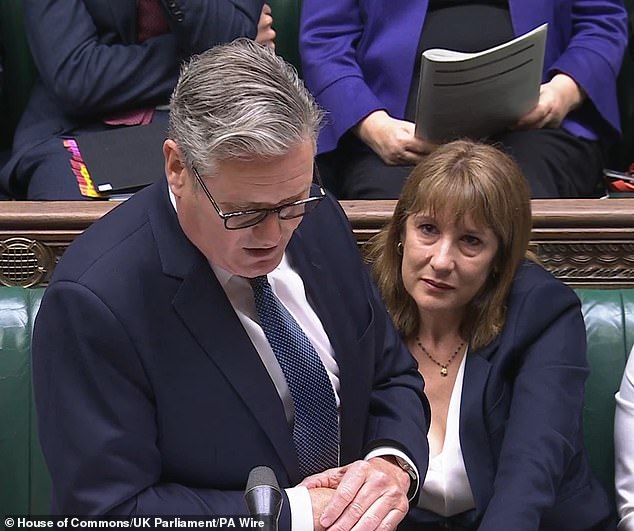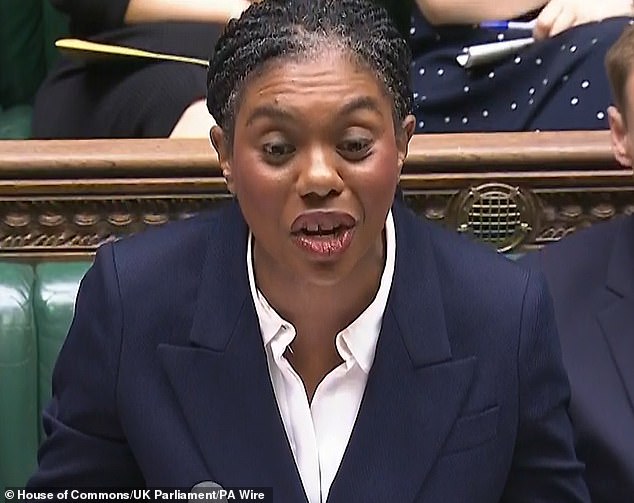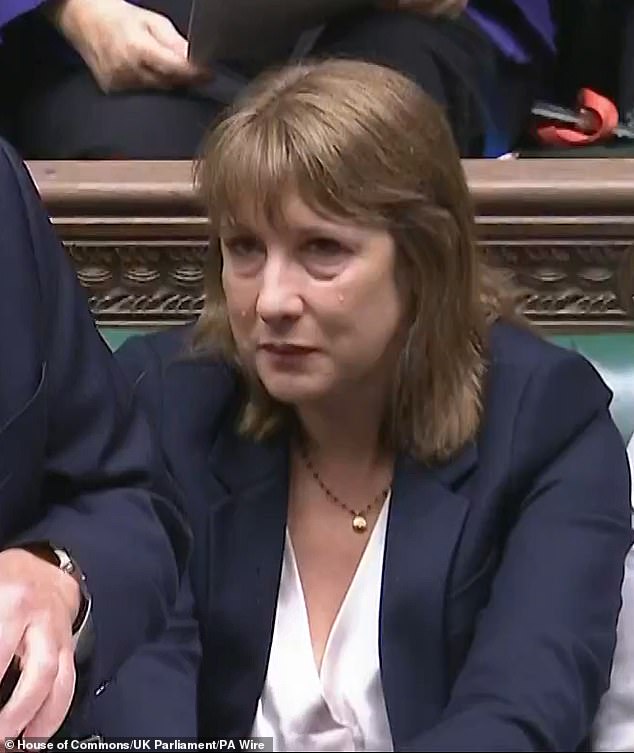By common consent, on the Left almost as much as on the Right, Keir Starmer has got off to the worst start ever of any incoming British Prime Minister swept to power with a large working majority, as he was a year ago yesterday.
‘Can he get the show back on the road before more damage is done?’ I asked a senior Labour minister this week. ‘Yes, he can,’ came the reply.
‘Are you sure?’ I pressed.
‘No,’ he said, scuttling off before I could ask a follow-up.
Doubts about Starmer are spreading through Labour ranks like wildfire under a Mediterranean heat dome. The Party was never that enthusiastic about him in the first place. Most Labour luminaries were sniffily indifferent, regarding him as the best of a bad bunch.
Now he’s increasingly seen as a liability, not just because of the drift and dither, U-turns and wrong turns, but because they think he lacks the depth of character, commitment and vision to turn things round.
The number of Labour MPs already contemplating defeat come the next election is remarkable (it’s once reason why they think they have nothing to lose by rebelling). Harold Wilson, a former Labour PM whom Starmer admires, once said: ‘A week is a long time in politics.’ Last July already looks like another age.

Sometimes there’s an image which comes to haunt a government and its prime minister, writes Andrew Neil. Keir Starmer’s uncaring, solipsistic performance on Wednesday will be his
Sometimes there’s an image which comes to haunt a government and its prime minister and – in retrospect – becomes emblematic of their decline and fall.
Jim Callaghan’s unconvincing attempt to underplay the impact of the 1978-79 winter of discontent – from the sunny Caribbean.
John Major’s efforts to explain away sterling’s unedifying exit from the European exchange rate mechanism in the autumn of 1992 – which still stalked him when he lost by a landslide to Tony Blair in 1997.
Theresa May insisting ‘Nothing has changed’ two weeks before the 2017 General Election in which she lost her Commons majority – when so clearly it had.
Boris Johnson’s bumbling attempts to justify Downing Street parties during the Covid lockdown.
Rishi Sunak calling an election in the pouring rain outside 10 Downing Street last summer.
And now Keir Starmer’s uncaring, solipsistic performance at Prime Minister’s Questions on Wednesday as his Chancellor, Rachel Reeves, sat next to him in obvious turmoil, dark bags under her eyes, tears rolling down her cheeks, a look of sheer exhaustion gripping her face.
Starmer remained unperturbed. He was preening and pontificating at his patronising worst as he batted away questions from Kemi Badenoch.
When the Tory leader brought the Chancellor’s plight to his attention he remained unconcerned. He offered her no comfort. He even refused to confirm she was secure in her job. That had to be prised out of him later on the BBC.
He went off on a riff about some arcane football memory – as politicians anxious to big up their pseudo-working class roots are prone to do these days – while his Chancellor struggled to hold it together. Lad’s banter eclipsing a woman in distress.
Starmer later claimed he hadn’t noticed his Chancellor’s anguish. Coming from a PM who’s increasingly a stranger to the truth, that’s hard to credit. But it’s almost worse if it’s true – it would mean his human antennae are so weak, his empathy for others so limited that he can’t even detect an obviously troubled woman by his side.
The image sticks of an aloof PM, too wrapped up in his own survival to reach out to a colleague in need. A robotic figure, unloved by the country and disliked now even on his own backbenches, devoid of common humanity.
A knight of the realm for whom chivalry is a foreign country. A leader, Labour MPs are concluding, incapable of leading them out of the current slough of despond into which he has taken them.
Ministers hope that the summer recess, which can’t come quickly enough for Labour, followed by a tub-thumping party conference in the autumn, will recharge the batteries and refresh the Government for recovery. In reality, things are more likely to get worse.
The country’s fiscal position is dire, all the worse after Starmer’s various surrenders on welfare reform and the winter fuel allowance.
A shedload of tax rises loom again in this October’s Budget perhaps even on the same grand scale as last October’s, the most significant milestone, so far, in Labour’s speedy decline.
Starmer and Reeves keep on insisting they’ve ‘fixed the foundations’ of the economy. It’s a ludicrous claim. A real black-hole is yawning in the national accounts as big as the one they invented on assuming power to justify breaking their election promise not to jack up taxes.

Starmer remained unperturbed. He was preening and pontificating at his patronising worst as he batted away questions from Kemi Badenoch, says Andrew Neil

It’s a nightmare for Reeves, writes Neil. She derailed a nascent recovery with £40billion of tax rises in her first Budget. No wonder Reeves looked so distraught
The welfare and heating allowance surrenders will leave Reeves over £6billion short. Official forecasters now reckon they were too optimistic in their estimates for economic growth, on which Reeves’s revenue projections are based.
Slower growth could cost Reeves another £10billion. Then there’s the rising cost of servicing Government debt, which shot up this week when bond markets saw the state of the Chancellor at PMQs.
Add it all up and Reeves could easily have to raise taxes by another £20billion come the autumn. That’s before she bends to other significant spending pressures.
Labour backbenchers have tasted successful rebellion. They like the flavour. They will soon be back for more.
They now have removing the cap on child benefit in their sights.
The balance of power within Labour has shifted. The Left is now in the ascendent. Not the Corbynista Left. But a Left which nevertheless believes in more borrowing and more taxes (including wealth taxes) to feed its insatiable appetite for more government.
Labour is now retreating into its welfarist comfort zone where most of the party’s activists are at their happiest – doling out dosh to various people for doing nothing. Starmer, of no fixed ideological abode himself, will be pulled from pillar to post to accommodate this new, more rebellious mood and save his own skin.
Any chance of serious welfare reform has gone. What Starmer proposed wasn’t even the bare minimum required. But at least it was a start. Now we don’t even have that consolation. This year we will spend £330billion on welfare, including state pensions. That’s 10 per cent of our GDP and a quarter of total Government spending. Within that total £75billion is spent on sickness and disability-related benefits, which are growing fast.
Every working day, 3,000 new people are reportedly signing up for sickness related-benefits.
Total numbers are projected to rise from over three million to almost four million by 2030, many of them young, most of working age.
By 2030 total welfare spending is projected to be heading towards £400billion, with sickness and disability-related benefits accounting for almost a quarter of that. Labour promised the fastest growing economy in the G7.
Instead it is building on a miserable inheritance from the Tories: the biggest proportion of those of working age ‘on the sick’ or on disability allowance in the G7. This week’s great welfare surrenders lock these trends in.
It’s a nightmare for Reeves. She derailed a nascent recovery with £40billion of tax rises in her first Budget. It looks as if she’s heading for more growth-destroying tax rises in her second. More economic growth was meant to be Labour’s core mission. That’s now being shredded. No wonder Reeves looked so distraught.
Of course, at some stage the debt markets will have their say. America, Germany, France and Japan are all, like Britain, issuing record levels of new debt. We are especially vulnerable should global bond market sentiment turn against us, as it so easily could with Labour’s soft Left calling the shots.
It’s already costing us over £100billion to service a national debt heading towards 100 per cent of our GDP.
If the bond markets decide it wants a risk premium to lend us even more, the cost of debt service will soar and interest rates will stay high, scuppering much of the Government’s agenda.
Failure already beckons on almost every front. The ambition to build 1.5million new homes before the decade is out is widely regarded as a joke in Whitehall.
Starmer’s promise to smash the people-smuggling gangs is itself in smithereens. Over 20,000 illegal migrants have crossed the Channel this year so far, setting a new record high for the first six months of a year. And at least 50,000 have arrived since Labour took office almost exactly a year ago..
Everywhere you look the wheels are coming off.
Starmer recently made a major speech on legal immigration, designed to indicate a tougher stance. Now he admits he didn’t properly read it and regrets saying we risked becoming ‘an island of strangers’, even though that was the phrase which resonated most with folks who think immigration too high.
He claims to have been distracted by a fire-bomb attack on the Starmer family home – where his sister-in-law had been staying since his move to No 10 – in the early hours of that morning. He then said he’d been too busy at the NATO summit fully to engage with his own welfare reforms.
It’s tough being Prime Minister. But it is a prerequisite that you can multi-task because troubles come in clusters. Sometimes it’s hard not to wonder out loud if Starmer is really up to the job.
Only a year in power and we could already have reached the beginning of the end of the Starmer Government. It won its landslide on a mere 34 per cent of the vote, a trick of Britain’s first-past-the-post voting system when the vote is shared generously between a number of parties rather than just two.
The lastest polls put Labour ten points down on 24 per cent, five points behind Reform.
Labour will not crumble overnight or even in the weeks or months ahead. Rather the prospect is for a grim, steady decline with failure piled upon failure.
Reeves will be lucky to make it through the year after a second tax-increasing Budget – that’s if she stays at the Treasury long enough to deliver it. In Labour circles there’s a growing expectation Starmer won’t be leading the party come the next election.
Yet this is not just about a failing Labour Prime Minister and his floundering Government.
As I watched PMQs on Wednesday and looked at both front benches, something dawned on me I had hitherto only vaguely perceived: we are now a country bereft of a credible or competent governing class on either side of the political divide.
Left, Right and centre, we lack the people and policies to tackle the gathering problems of our times. The ridiculous number of prime ministers and chancellors we’ve had in recent years is testament to the fact that when it comes to stable, sensible government we’ve become an unserious country.
We are rudderless and without purpose – adrift in a sea of troubles rather than in command of our destiny, confident of our direction.
The Starmer Government is but the latest manifestation of this grim feature of Britain in the 21st century. It will not easily or quickly be put right.












